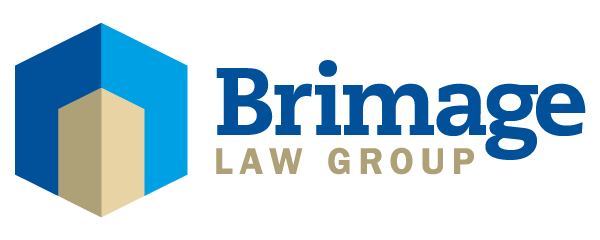Big Brother Is Watching… And Maybe Your Neighbour Is Too
Picture this: you’re sitting in your backyard, getting some sun, and enjoying some quality private family time. However, you may be under the watchful “eye” of an Unmanned Aerial Vehicle (“UAV”), sometimes referred to as a “drone”.
Technology can be helpful, inspiring, and even fun, but it’s not always without downsides: innovation and its application may result in the erosion of your privacy.
Alternatively, you may be looking for a fun and constructive activity to do with the kids; why not build and fly a model airplane?
All of the above begs the following question: what’s the deal with UAVs in Canada?
Under the Aeronautics Act, the Canadian Aviation Regulations provide that Transport Canada has jurisdiction over UAVs.
For the sake of brevity, we’ll take a quick look at two likely perspectives:
(1) “I want to fly a UAV/model aircraft. What next?”
Transport Canada’s website has a section entitled, “Flying an unmanned aircraft”. This provides guidance regarding operating UAVs.
Whether or not you’ll need permission to fly depends on your situation, including, but not limited to: the weight of your UAV; your purpose for flying it (ex. recreational or commercial), and several other considerations.
(2) “I’m concerned about my privacy. What can I do?”
The Office of the Privacy Commissioner of Canada’s website (www.priv.gc.ca) has an abundance of information and guidance about protecting your privacy.
The most important issue in any given situation is usually proof; you should be able to back up any claims to invasion of privacy that you might be making, whether against a governmental or private organization.
(2.1) Dealing with Governmental Agencies
If the organization that is behind the activity that you are concerned about is a federal organization or agency, then the handling of any information obtained as a result of the activity may be governed by the Federal Privacy Act. In the section “Complaints to the Privacy Commissioner” at page seven of its guidance piece, “Protecting Your Privacy”, the Office of the Privacy Commissioner of Canada recommends that you first try to work out any dispute directly with the federal agency or organization in question, preferably with the particular agency’s Privacy Coordinator.
Alternatively, the Privacy Commissioner’s Office provides for a complaint process that may be initiated electronically or by mail. For more information about the complaints process, check out the Privacy Commissioner’s website at: www.priv.gc.ca.
(2.2) Private Organizations
The Personal Information Protection and Electronic Documents Act (“PIPEDA”) applies to private enterprises in most provinces in Canada.
A few provinces, such as Quebec, British Columbia, and Alberta, have adopted their own privacy legislation similar to PIPEDA, serving a similar function on a provincial basis.
PIPEDA requires “…private sector organizations to collect, use or disclose your personal information by fair and lawful means, with your consent, and only for purposes that are stated and reasonable”: Protecting Your Privacy, Office of the Privacy Commissioner of Canada.
If you have a problem…
Again, the Office of the Privacy Commissioner recommends that you first try to work any issues out with the organization in question. Failing that, you may wish to file a complaint with the Office of the Privacy Commissioner. The Commissioner may investigate the issue and try to resolve it. If not, you might wish to look into litigating the matter in the Federal Court of Canada.
PIPEDA has some gaps in its coverage. For one, the Privacy Commissioner does not have the power to impose fines on organizations for contraventions of the Act: Protecting Your Privacy, p. 13.
Another potential pitfall with PIPEDA is that it only applies to commercial activities (PIPEDA, s. 4(1)(a));private individuals’ collection of information may not be covered by the Act.
Further, PIPEDA provides for an exemption for organizations that collect for “…journalistic, artistic or literary purposes…”: PIPEDA, s. 4(2)(c).
(2.3) “What if my situation isn’t covered by the Privacy Act or PIPEDA?”
The Privacy Act and PIPEDA don’t cover every circumstance where your privacy could be violated.
There is other legislation that deals with other privacy issues. For example, in Ontario the Personal Health Information Protection Act deals with the “collection, use and disclosure of personal health information”. However, civilian UAV technology is still new enough not to have its own special privacy legislation.
Without specialized legislation, case law provides some assistance in dealing with UAV-related matters.
In Jones v Tsige 2012, the Ontario Court of Appeal recognized “intrusion upon seclusion” as a basis on which a person could sue for damages. To succeed in such a claim, a person would have to prove that:
- the offending party’s (“OP”) conduct was intentional;
- the OP “invaded, without lawful justification, the [person’s] private affairs or concerns”;
- “a reasonable person would regard the invasion as highly offensive, causing distress, humiliation or anguish”
Although this case involved bank records and not UAVs, it is reasonable to believe that the definition of “intrusion upon seclusion” would extend to UAV privacy claims as well.
Conclusion
There are gaps in the legislation concerning the protection of privacy in Canada, both provincially and federally. The area is still new and underdeveloped.
The struggle is one of balance: giving innovation the space that it needs to continue, while protecting the interests of individuals impacted by that innovation.
The takeaway here is proactivity: get familiar with the basics of how you can take the protection of privacy into your hands. Know your rights and how you can protect them, so that you might avoid having to venture into the legal grey area of UAV-related privacy law. As the age-old adage goes, “a pinch of prevention is better than a pound of cure”.

